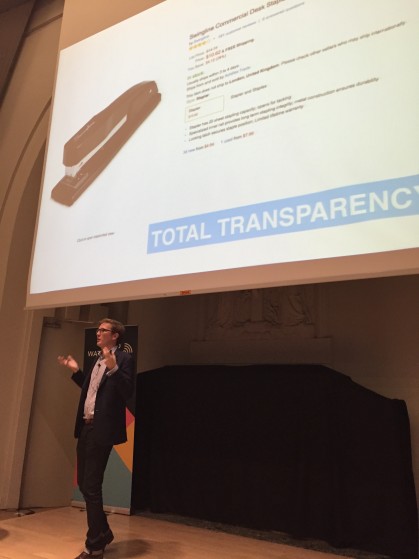
Today, I was interviewed by a Croatian business magazine in preparation for my trip to Croatia to give a speech later this month. They asked some interesting questions that I had never gotten before from journalists.
One question was: “In the end, how useful do you find these kinds of gatherings like the Combis Conference?”
That was a great question. I replied:
“This might sound grand, but I truly think that there are a few things more powerful than a bunch of people coming together to learn new things. I believe in the concept of collective inspiration. (I guess that is why I have been a speaker for more than 20 years…).”
I often hear people say that the concept of speakers, or the concept of conferences, is dead. That in the future, there will be no speakers, or there will be no conferences. People will just get their inspiration and their information online.
I do not believe that for one second.
Music concerts did not die because we got MTV, or Napster, or satellite radio, or Spotify.
Because no matter how cool it is to be able to listen to infinite amount of music at your fingertips, it will never beat the intimacy, the impact and the emotional experience you get from being at a concert.
And the same is true for speeches.
We can watch thousands of TED talks, or hundreds of lectures online, but sitting in the audience of a great speaker will always be something extra. And sharing that experience with others as a group makes it even more impactful.
That is what I try to hint at with my words “collective inspiration”. That unique human connection which happens when a large number of people experience the same message at the same time.
To have a job where you, as the speaker, are an important part of creating that magic, is an honor and a privilege.
Now, are all conferences awesome temples of inspiration?
Honestly, NO.
But when it happens…when the stars align, and speakers, audiences and message collide in the most positive of ways, then there are just a few things which human beings can do that are more powerful.
Aim for that magic if or when you organise a conference. And if or when you are inspired to speak at one.

